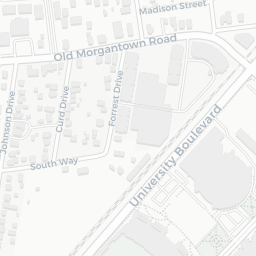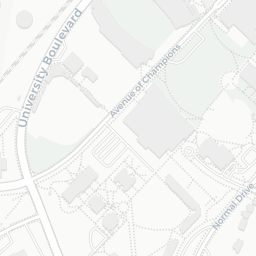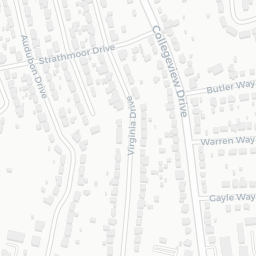Military Science and Leadership
Annex G
INTRODUCTION.
If there is any one fundamental that underlies all proper social conduct, it is this--consideration for the rights and dignity of others. While some of our social customs seem somewhat involved, all proper conduct originally springs from this fundamental. The knowledgeable officer will, at all times, conduct himself in such a manner that will cause the least embarrassment, discomfort, and inconvenience to those around him. An officer, in social relations, should never forget this principle of consideration for others.
Two of the most important expressions in your whole vocabulary are "please" and "thank you." If you are thinking in these terms, chances are that you are headed in the right direction, even though you may be a little rusty on the particular rules governing a situation.
An officer's attitude toward other people will distinguish the gentleman or lady from the boar. Each person, man or woman, should always be treated with consideration and courtesy. The knowledgeable officer will practice this deference to all those encountered, whether in a business or social environment.
There is an old military maxim that in the relations between seniors and juniors, "The senior will never think of the difference in rank; the junior will never forget it." This adage is just as true in social as it is in official relations. Adherence to this principle leads to ease and harmony. Violation of it often leads to unpleasantness and sometimes to outright embarrassment. Cadets should never allow the cordial informality of a cadre member to mislead them into carelessness.In other words, if a cadre refers to a cadet by his first name, the cadet is not free to call the cadre member by his first name.The cadet should not feel slighted either, as the habit of seniors calling juniors by their first name has become a custom.
During your career as an officer, you will meet literally hundreds of people, both officially and socially. The impression that you make on all these people depends very much on your social conduct in all its aspects: politeness, proper clothing, respect for seniors, table manners, courtesy to others, and correct correspondence. It is therefore in your best interest to become familiar with these procedures as soon as possible.
CUSTOMS OF THE SERVICE.
"Nothing is Stronger than Custom" - OVID.A custom is an established usage. Customs include positive actions--things to do, and taboos--things to avoid doing. Much like life itself, the customs that we observe are subject to a constant and slow process of revision. Many of those customs that were commonplace a generation or two ago have passed into a period of declining observance. New customs arise to replace those that have declined. Others live on and on without apparent change. To an astonishing degree, man is eager to follow established practices. The realization that he is following a course that has been successful for others in similar circumstances bolsters his confidence, thus encouraging him or her to adhere to his/her course. Whether a custom is ancient or new, its influence is profound. It follows, that, as a long established social organization, the Army observes a number of customs that add appreciably to the interests, the pleasures, and the graciousness of Army life. This section is intended to explain and to help perpetuate those Army customs that have enriched many lives for many years. In knowing and practicing these customs you will be rewarded with enjoyable experiences and new friendships formed, all strengthening the purposeful service that our mission requires.
The Correct Use of Titles.Each member of the Army, from Private to General of the Army has a military grade which becomes his title by force of regulation and custom. On official correspondence a serviceman's title always accompanies his name. Titles are also used in conversation between service members. Likewise, by usage and customs, military titles are used between military and civilians just as custom has dictated the usage of "Senator," "Professor," or "Doctor." During ROTC activities, cadre and cadets of senior rank will be addressed by rank and name: "Sergeant Smith" or "Captain Jones". In as much as military courtesy works both directions in the chain of command, you will be addressed as "Cadet Jones." The terms "Sir”, “Ma’am" or "Sergeant" will be used to show the appropriate respect when conversing with or replying to a cadre or a cadet officer or noncommissioned officer of higher rank.
Titles of Commissioned Officers. Lieutenants are officially addressed as "Lieutenant." The terms "First" and "Second" are used only in written correspondence in the address line.
Other commissioned officers are addressed by their title. In nonofficial correspondence and conversation, brigadier generals, major generals, and lieutenant generals are addressed as "General." Under the same conditions, lieutenant colonels are referred to as "Colonel."
Frequently, senior officers will address junior officers by their first name (but never NCOs); however, this in no way gives the junior the privilege of referring to the senior in any way other than with his proper title. Chaplains are addressed as "Chaplain." A Catholic Chaplain may properly be addressed as "Father."
Titles of Warrant Officers. Warrant Officers are referred to as "Mister," or "Ms.".Chief Warrant Officers (CW2 through CW5) under informal circumstances are referred to as "Chief".
Titles of Noncommissioned Officers.Noncommissioned officers are addressed by their title. Sergeants Major are addressed as "Sergeant Major" and First Sergeants are addressed as "First Sergeant." All other sergeants are referred to simply as "Sergeant." A specialist is addressed as "Specialist," and privates are addressed as "Private."
Reporting. Cadets in uniform reporting to a cadre officer or a cadet officer of higher rank will:
Come to attention.
Salute, holding it.
Report as appropriate: "Sir, Cadet Jones reports as directed" or "Ma’am, Cadet Doe requests permission to speak with you" etc.
Drop the salute after it has been returned.
Remain at attention until told "At Ease" or other direction.
At completion of the conversation return to attention; if at ease, salute and hold the salute until it is returned; drop the salute, then depart.
SALUTING
This traditional military greeting is one of the more important forms of military courtesy. The manner in which a salute is rendered or returned tells much about an individual soldier and his unit. Detailed instructions on proper saluting are contained in FM 3-21.5, Drill and Ceremonies. The proper salute will be rendered as follows:
As required at military formations and ceremonies as prescribed by FM 3-21.5.
- By all cadets in uniform outdoors when meeting or when approached by a cadre officer or a cadet officer of higher rank. The greeting of the day or the battalion motto* is given at this time (i.e. “Lead from the top, Sir or Ma’am”).*The motto is also said when the battalion is called to attention if formation.(i.e. “Lead from the top!”)
- By cadets in uniform indoors reporting to a cadre officer. (Reporting is covered in paragraph 3, above).
- As the national colors pass by or is passed by out of doors when in uniform.
- Always salute the most senior officer.
- An appropriate greeting should be offered when saluting a higher-ranking official: e.g., "Good morning, Ma’am"
- The salute is not rendered indoors except when reporting or when in a ceremony.
- On campus - saluting is optional when both parties are in civilian clothing, however it is mandatory when in uniform.
The Senior's Place of Honor.Another ancient military custom dictates that you should alwayswalk or sit to the left of your superiors. For centuries men fought with swords, and because most men are right handed, the heaviest fighting occurred on the right. The shield was on the left arm, and the left side became defensive. Men and units who preferred to carry the battle to the enemy, and who were proud of their fighting ability, considered the right of a battle line to be a post of honor. Therefore, when an officer walks or sits on your right, he is symbolically filling the post of honor.
Use of "Sir" or Ma’am"
A soldier, in addressing a military superior, uses the word "Sir" or "Ma’am" in generally the same manner as does a civilian speaking to a person to whom he wishes to show respect. In the military service, however, the matter of who says "Sir" to whom is clearly defined: in civilian life it is largely a matter of discretion.
As a general rule "Sir" or "Ma’am" is used in speaking either officially or socially to any officer. The word is repeated with each complete statement. When saying, "Yes" and "No", follow it with “Sir” or “Ma’am” or the appropriate title if speaking to a noncommissioned officer.Never say just “Yes” or “No”.Those words are disrespectful when used alone.
Do not overuse the words."Sir" or "Ma’am" should not be said with every other breath to the point of obsequiousness. In official dealings between officers who know each other well, it is proper to use the word with less frequency.
While noncommissioned officers may be called by their titles alone, it is generally not the appropriate way to address officers.For example, it is appropriate to say “Sergeant Major” or “Sergeant” when speaking directly to that individual.Referring to an officer as “Captain”, “Major”, or “Colonel” is not correct.The correct term when speaking to an officer without using his/her last name is “Sir” or “Ma’am”.
No Excuses
One of the most firmly established concepts of military service is the practice of accepting any task assigned, and of accomplishing each task. In the event that some task might not be accomplished, it is traditionally expected that the officer assigned that task should not offer excuses to justify failure.
This concept is founded upon the precept that our Army exists to defend the nation, and that any mission or task assigned to an Army officer contributes directly to that defense. The application of this concept results in training Army officers to focus their efforts and ingenuity on finding solutions to challenges with which they are presented, rather than on a search for reasons why the task should not be attempted or excuses why it could not be accomplished. This focus on mission accomplishment must be accompanied by a strong sense of ethical self-discipline--determination to accomplish the task and to overcome the challenges--, which insures that the actions taken are within the letter and the intent of the appropriate policies, regulations, and established procedures.
Within these guidelines, the officer must realize that there are certain circumstances under which "No Excuse, Sir" is not an appropriate answer. If the task in question was not accomplished for reasons that indicate that some part of "the system" is not functioning properly, then the officer has the obligation to point out these flaws in the system, rather than to allow them to remain unnoticed in a misplaced sense of self sacrifice. Such flaws must never be pointed out as an attempt to throw up a smoke screen behind which to conceal your own shortfalls for which there truly is "No Excuse, Sir."
Military Science and Leadership
Diddle Arena 2027
1605 Avenue of Champions,
Bowling Green, KY 42101-1030
(270) 745-4293
Additional Information




















